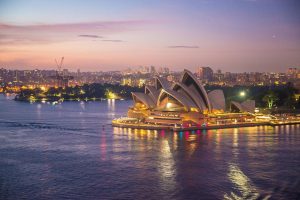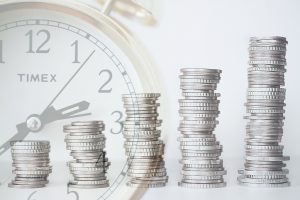Blog
Tailpieces Blog Post 264
Challenging China’s Rare-Earths Dominance
Challenging China’s Rare-Earths Dominance
The Pentagon has awarded $30 million to Australia’s Lynas – the world’s leading specialist outside China in mining rare earths – to develop a processing facility in Texas.
Rare earths are 17 minerals which are considered essential components in electronic devices such as smartphones, electric cars and wind turbines – but especially in weaponry such as ballistic missiles, drones and aircraft. F-35 fighter jets need 417 kilos of the stuff for their guidance systems; US Navy fast-attack submarines need more than four tons.
Trouble is, China controls more than 80 per cent of world supplies. Even the US, which does mine some rare earths, has to ship its ores to China for refining. A critical element of the nation’s arms production depends on a strategic military rival. Which has threatened to cut off supplies in a tit-for-tat move following America’s bans on supplies of advanced silicon chips.
The main problem associated with rare earths is not that they’re actually rare. They’re found widely. The problem is that processing them is difficult and extremely messy, so no country wants to allow it. Waste includes contaminants that are hard and expensive to deal with such as radioactive thorium, uranium, cadmium, lead and mercury, all of which can poison water and soil and cause cancer.
China is prepared to accommodate this nasty business as the price of world dominance of a key supply chain. America is preparing to cut the link.
Tailpieces
Tailpieces
Tourism: Tiny countries whose businesses have been devastated by the pandemic have developed a counter-strategy that seems to be effective. They are going out of their way to attract as residents those who can work from home even if physically located a long way from their markets.
Barbados was the pioneer, offering a one-year remote-working visa to applicants earning $50,000 or more a year to applicants from an employer based outside the country. Other Caribbean island nations such as the Bahamas, St Lucia, Bermuda and Antigua have followed the model to attract the “digital nomads” able to work from home in places that also happen to be nice places to live.
Apps: Who would have thought that in 2021 we’d be using a Russian program to communicate without censorship and to protect free speech?
Last month Dubai-based Telegram, founded by Russian entrepreneur Pavel Durov, became the most downloaded app in the world. Telegram and the Signal service promoted by Egon Musk have become wildly popular since Facebook’s Whatsapp told its 2 million users that they would have to accept the new terms of its privacy policies if they wished to keep using its free messaging service.
Many American conservatives have been booted off Facebook, Twitter and YouTube in an ideologically-driven purge by Silicon Valley Leftists.
Nuclear power: Biden’s plan for a “clean energy revolution” accepts nuclear as one of its components. It favours small modular reactors as one element of acceptable technologies.
In the past many carbonatics opposed nuclear, which has always been a zero-carbon technology, because of its risk to the environment from disasters. Others argued contrarily that the world cannot refuse to use it because of its capacity to deliver carbon-free base-load electricity without the well-known disadvantages of renewables such as intermittency.
Clearly that argument has now been won.
Woke report: San Francisco’s Board of Education has targeted Dianne Feinstein by removing her name from a school named after her. She is no obvious target for the current wave of lunacy to rewrite history by “cancelling” those accused of past association with slavery. She is a pillar of the Democrat establishment as US senator for California, the most important Democrat state. Her “crime” is that 36 years ago, when she was mayor of San Francisco, she allowed a Confederate flag to be one of a large display of historical flags.
Property: Proof that Hong Kong’s economy is not collapsing is news of a record-breaking transaction. A 364 sq.metre luxury apartment in Mid-Levels sold for 459 million HK dollars – reportedly the most expensive ever sold in Asia.













